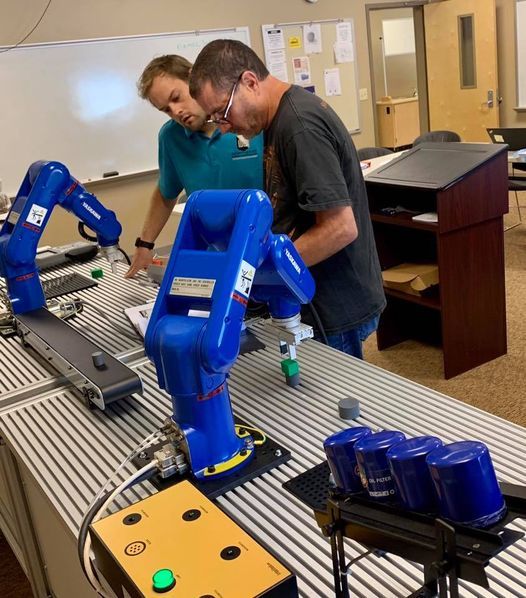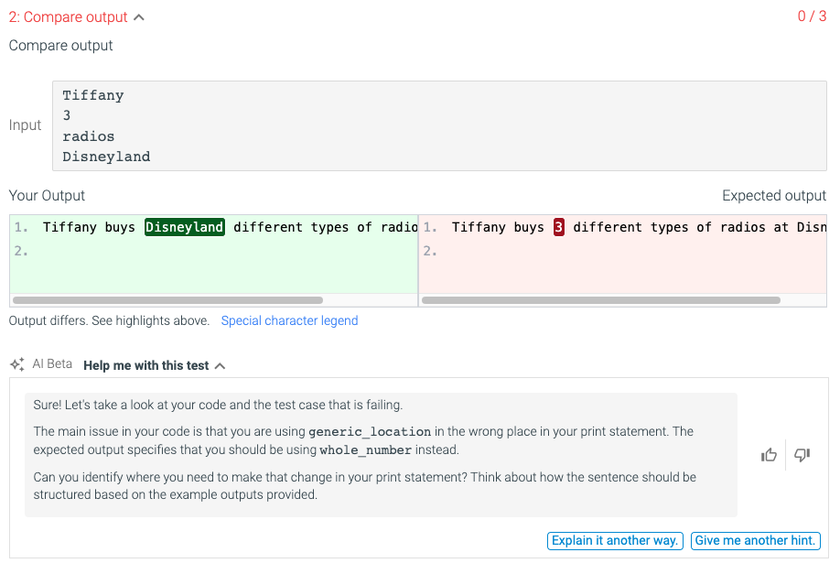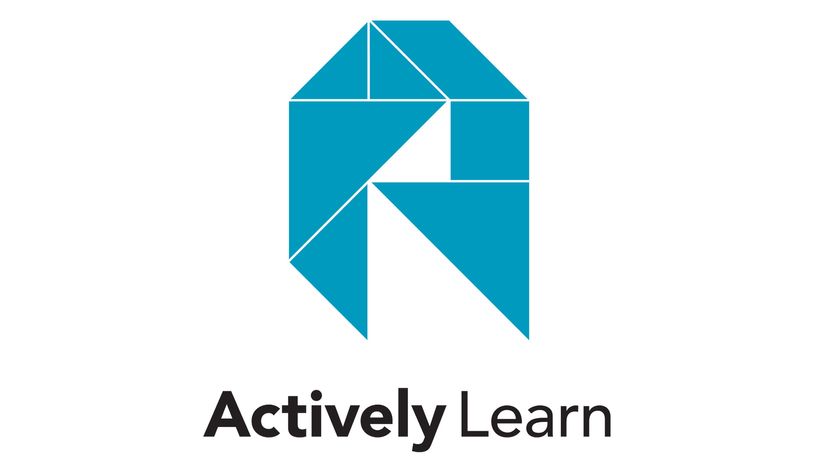How to Use Robotics Training to Build Manufacturing Skills
Northeast Mississippi Community College Trains Robotics Technicians for Local Industry

Industry 4.0 is embracing robotics. However, manufacturers cannot find enough trained robotics technicians to hire to work in their plants. There are just not enough available graduates, which is why federal funding for Career Technical Education (CTE) is part of the three COVID-relief stimulus bills. Also, the Biden Administration’s proposed infrastructure bill designates $1.8 billion for training and reskilling.
School leaders at Northeast Mississippi Community College (NEMCC) are very aware of the manufacturer needs in their local area. “When we developed our program, we spoke with manufacturers in five surrounding counties to find out what they needed,” says Kyle Carpenter, workforce trainer/workforce E-learning administrator.
NEMCC combined grants with government funding to buy their first robotics cells and training curriculum from Intelitek, which were intended to train unemployed people for specific industries. “Students need to know not only how to operate robots, but how to program and maintain them as well,” says Carpenter.
Upskilling and Reskilling for New Work Opportunities
One in three working Americans, including 33 million low-income workers, has the potential to access higher-income occupations with some training and new technical skills, according to the World Economic Forum. Economists believe that learning new skills is key to participating more fully in the post-pandemic economy. It is also the fuel behind one of NEMCC’s success stories.
James Duke is exactly the kind of person the school had in mind when the program was launched. “I was an ironworker for 27 years; then I ran my own trucking firm for seven years,” he says. “I thought the Intelitek program [NEMCC] was using was good and easy to understand.”
After Duke finished the program, he was hired by Ashley Furniture, who gave him additional system-specific training. Once he was hired, it wasn’t just robotics he worked on, but also whole systems that require maintenance.
“Entry level training programs teach a basic set of skills to apply across industries wherever robots are used,” said Erik Nieves, an industry expert, who adds that many companies have their own specialized systems that workers need to be able to adapt to. “For example, distribution and fulfillment centers use robotics and have the same sorts of fundamental problems to solve.” In general, employee shortages will lead to automation and additional robotics.
Tech & Learning Newsletter
Tools and ideas to transform education. Sign up below.
To complete a fundamentals course, students must also learn about other machines in addition to acquiring interpersonal skills for collaborative work environments.
“Robotics training needs to be broader than just how to make the robot work or how to maintain the robot,” said Graham Celine, from Intelitek. “When we create a training program for schools like NEMCC, we take into account students coming in at different levels of experience. We also look at the other competencies a graduate needs when they get into real jobs and build programs that include theory, practical hands-on, assessments and certifications.”
Robotics Training Certifications
Industry 4.0 deals with a new world of integration and collaboration, and the training courses can be tough for some students, according to Carpenter. “We’ve designed our program to weed out students who are not ready to commit,” he says. For example, the Intelitek curriculum is designed to engage students in hands-on labs, and Carpenter’s role as an instructor is to help students navigate the program. “But they’re on their own to do the work,” he says.
From an industry perspective, Nieves believes that certification programs need to transition from the current vendor-specific certifications to more vendor-agnostic, portable, national certifications. Since robotics is growing as an industrial practice, it is inevitable that certifications will move to some sort of national model. “We need to know we’ve got the right people trained in the right way, no matter where they go,” he says.
The certification programs the college uses for production technician and robotics are nationally known certification programs. “We have certifications because of the demand,” says Carpenter. “These certifications are available throughout the U.S., and industry needs to recognize them.”
The Future of Robotics and Industry 4.0
When educators and industry folks talk about Industry 4.0, they are really discussing a variety of skills. For instance, robotics are tied to upper level controls that direct the pace of work, and at the same time, computer programming schools are teaching Python and other coding languages. “We need more programming in Industry 4.0,” says Nieves. “Everyone should come out of school with Python scripting. It helps you formulate the right way to think through a problem.”
Being successful requires the learner to take responsibility for their own learning. “Whether or not you become a robotics technician, you have to motivate yourself and own your experience,” says Nieves.
Summing up his experience, Duke says that Carpenter and the NEMCC program made the reskilling process easy for him, and he is enthusiastic in his encouragement for others to consider the program. “You can learn this for yourself,” he says. “Get out there and get with it.”
Annie Galvin Teich has more than 25 years' experience in education writing and publishing. She is an edtech industry expert in content marketing and copywriting. As a regular contributor to Tech & Learning she focuses on the information needs of district decision makers.













